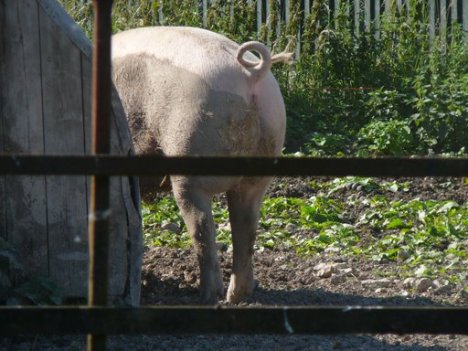Here.
The film is by the Barcelona film-maker, Ricardo de Baños, whose oeuvre, produced for an audience including Alfonso XIII, combined Barcelona storm scenes with early flamenco, as well as porn flicks like Consultorio de señoras and anti-Protestant erotica like El confesor. (BTW I wonder whether the otherwise excellent Ferdinand von Galitzien is not mistaken in suggesting that Teutons were only interested in politics: see for example Saturn-Films’ “Viennese scenes” on the same site.)
The film’s charm is obvious but still quite remarkable. Streets are pleasant, safe places almost entirely given over to walkers and cyclists; pavements are for pedestrians; and the boy who runs in front of the tram flashing his arse does so without endangering his life. In “Andanzas y lecturas. Una ciudad y un balcón”, published in La Vanguardia on 13/8/1912, Azorín portrays progress and popular optimism in three sketches situated at the beginning of the 16th, the 19th, and 20th centuries. The final episode is contemporaneous with the film and reflects its optimism:
The entire planet is covered with a network of railroads; trains travel rapidly along them; other vehicles–also self-propelled–fly at vertiginous speed through the countryside, through cities and mountains. The human voice can be transmitted from nation to nation. Man’s thoughts pass through the air, ethereally, from continent to continent. Man soars through the air in strange apparatus; he descends to the bosom of the oceans in strange ships and walks through it; once terrifying, he now laughs at sea storms from gigantic boats. The hands of the workers of the whole world reach over borders.
(Todo el planeta está cubierto de una red de vías férreas; caminan veloces por ellas los trenes; otros vehículos–también movidos por sí mismos–corren vertiginosos por campos, ciudades y montañas. De nación a nación se puede transmitir la voz humana. Por los aires, etéreamente, de continente a continente, van los pensamientos del hombre. En extraños aparatos se remonta el hombre por el cielos; a los senos de los mares desciende en unas raras naves y por allí marcha; de las procelas marinas, antes espantables, se ríe ahora subido en gigantescos barcos. Los obreros de todo el mundo se tienden las manos por encima de las fronteras.)
However, Azorín is also observing an observer, a stock figure drawn, says Inman Fox, from El Greco’s El caballero de la mano al pecho (a lactacting goddess behind the tash, say our experts) by way of a hidalgo in Lazarillo de Tormes. This man is a pessimist:
On the first balcony on the left, there in the house of stone in the square, is seated a man. He is apparently absorbed in deep meditation. He has a a fine moustache with raised tips. There he is, the gentleman, seated, with his elbow resting on one of the arms of the chair and his face supported by his hand. A profound sadness mists his eyes…
(En el primer balcón de la izquierda, allá en la casa de piedra que está en la plaza, hay un hombre sentado. Parece abstraído en una profunda meditación. Tiene un fino bigote de puntas levantadas. Está el caballero, sentado, con el codo puesto en uno de los brazos del sillón y la cara apoyada en la mano. Una honda tristeza empaña sus ojos…)
Perhaps the film’s equivalent of this man was stood on the steps of the church of the Josepets at Plaza Lesseps. His rheum with a view is of the square torn apart by a massive semi-tunnelled road junction, the streets awash with high-speed obesemobiles, the pavements crammed with illegally parked scooters (or preventative bollards, which discourage pedestrians just as effectively), and gardens knee-deep in dog excreta. The road to hell could hardly be better paved.
With Spain plunging into the abyss, it seems rather sad that environment policy is focussed on investments in renewable energy, which will reduce productivity, rather than on using the oil price hike as an excuse to encourage reductions in car purchase and use, which would make a considerable dent in the current account deficit as well as reducing health costs. But it’s probably asking too much of a president who believes he is starring in Punch and Judy to make an intelligent choice between the disastrous and the unpalatable.
[
Film via El veí de dalt at Malerudeveure’t
]
[
A friend comments: Mr Zapatero, where is my facking rent rebate which you promised me in January in order to win the elections, and which is worth less every month we stay in the euro zone?
]
[
If you’re interested in Azorín’s technique here, then you will find Osbert Lancaster’s Drayneflete revealed far superior. Since you didn’t ask, he is also a far better writer than Azorín, never mind Auden and all the crap that followed.
]
[
Yes, I did enjoy my holidays, thank you.

]
Similar posts
Back soon



Before and after video about Barcelona (1908-2008). Amazing!
http://www.youtube.com/watch?v=vxiiS8ZgAmU
Nice one, thanks!